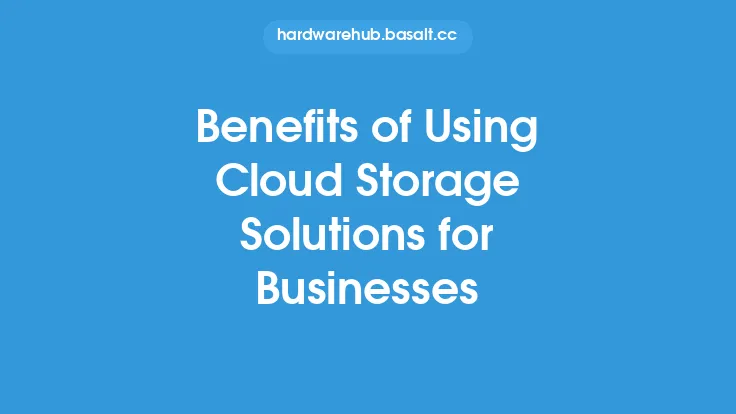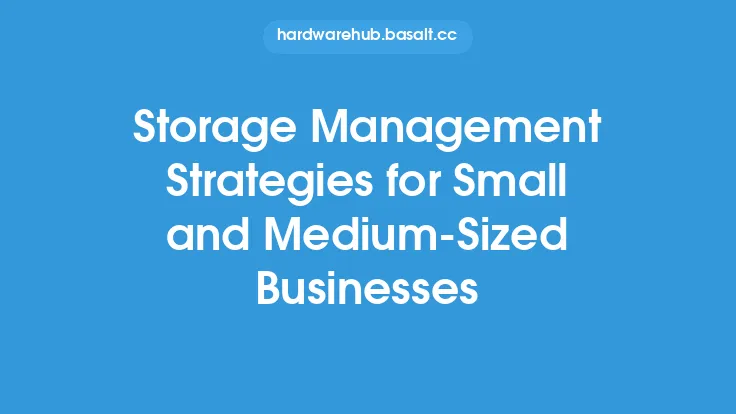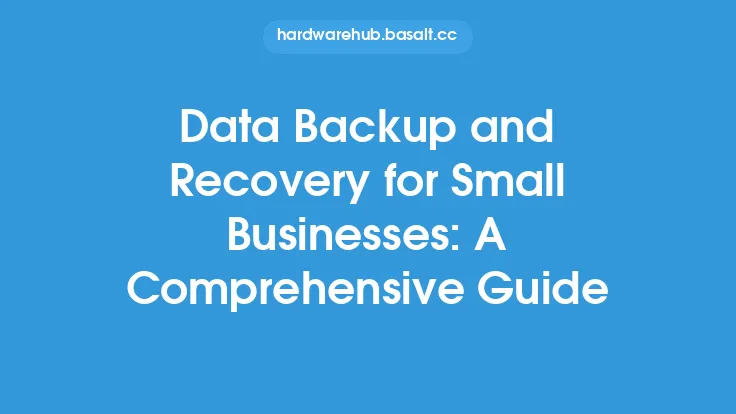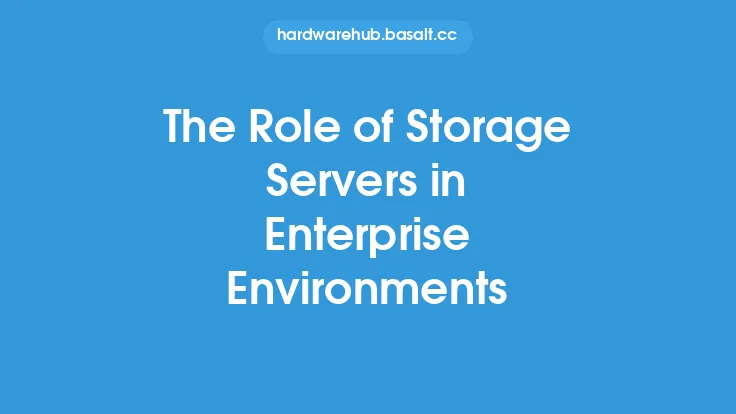As a small business owner, it's essential to have a reliable and efficient server storage solution to manage and protect your company's data. With the increasing amount of data being generated, it's crucial to have a storage system that can handle the demands of your business. In this article, we'll explore the different server storage solutions available for small businesses, their benefits, and key considerations to keep in mind when selecting a storage solution.
Types of Server Storage Solutions
There are several types of server storage solutions available for small businesses, each with its own strengths and weaknesses. Some of the most common types of server storage solutions include:
- Direct-Attached Storage (DAS): This type of storage is directly connected to a server or workstation, providing a simple and cost-effective solution for small businesses.
- Network-Attached Storage (NAS): NAS devices are connected to a network and provide shared storage for multiple devices, making it an ideal solution for small businesses with multiple users.
- Storage Area Networks (SANs): SANs are dedicated networks that provide block-level storage for multiple servers, offering high performance and scalability for small businesses with large storage needs.
- Cloud Storage: Cloud storage solutions provide a scalable and on-demand storage solution for small businesses, allowing them to store and access data from anywhere.
Key Considerations for Small Businesses
When selecting a server storage solution, there are several key considerations that small businesses should keep in mind. These include:
- Capacity: The amount of storage needed will depend on the size of the business and the amount of data being generated.
- Performance: The performance of the storage solution will depend on the type of storage and the workload of the business.
- Scalability: The ability to scale the storage solution as the business grows is essential for small businesses.
- Reliability: The reliability of the storage solution is critical, as downtime can have a significant impact on the business.
- Security: The security of the storage solution is also essential, as small businesses need to protect their data from unauthorized access.
- Budget: The budget for the storage solution will depend on the size of the business and the type of storage needed.
Benefits of Server Storage Solutions
Server storage solutions offer several benefits for small businesses, including:
- Improved data protection: Server storage solutions provide a reliable and secure way to store and protect data.
- Increased productivity: Server storage solutions can improve productivity by providing fast and reliable access to data.
- Scalability: Server storage solutions can be scaled to meet the growing needs of the business.
- Cost savings: Server storage solutions can provide cost savings by reducing the need for multiple storage devices and improving data management.
- Simplified data management: Server storage solutions can simplify data management by providing a centralized storage solution.
Technical Requirements
When selecting a server storage solution, small businesses should also consider the technical requirements of the solution. These include:
- Compatibility: The storage solution should be compatible with the existing infrastructure and operating systems.
- Connectivity: The storage solution should provide the necessary connectivity options, such as Ethernet or Fibre Channel.
- Management software: The storage solution should provide management software to simplify data management and monitoring.
- Redundancy: The storage solution should provide redundancy to ensure that data is always available.
- Backup and recovery: The storage solution should provide backup and recovery options to ensure that data can be recovered in case of a disaster.
Best Practices for Implementation
When implementing a server storage solution, small businesses should follow best practices to ensure a smooth and successful deployment. These include:
- Assessing storage needs: Small businesses should assess their storage needs to determine the right type and amount of storage required.
- Evaluating vendors: Small businesses should evaluate vendors to determine the best fit for their needs.
- Testing and validation: Small businesses should test and validate the storage solution to ensure that it meets their needs.
- Training and support: Small businesses should provide training and support to ensure that employees can effectively use the storage solution.
- Monitoring and maintenance: Small businesses should regularly monitor and maintain the storage solution to ensure that it continues to meet their needs.
Conclusion
Server storage solutions are a critical component of any small business, providing a reliable and efficient way to manage and protect data. By understanding the different types of server storage solutions available, key considerations, benefits, technical requirements, and best practices for implementation, small businesses can make informed decisions when selecting a storage solution. Whether it's a DAS, NAS, SAN, or cloud storage solution, the right storage solution can help small businesses improve productivity, reduce costs, and protect their data.





